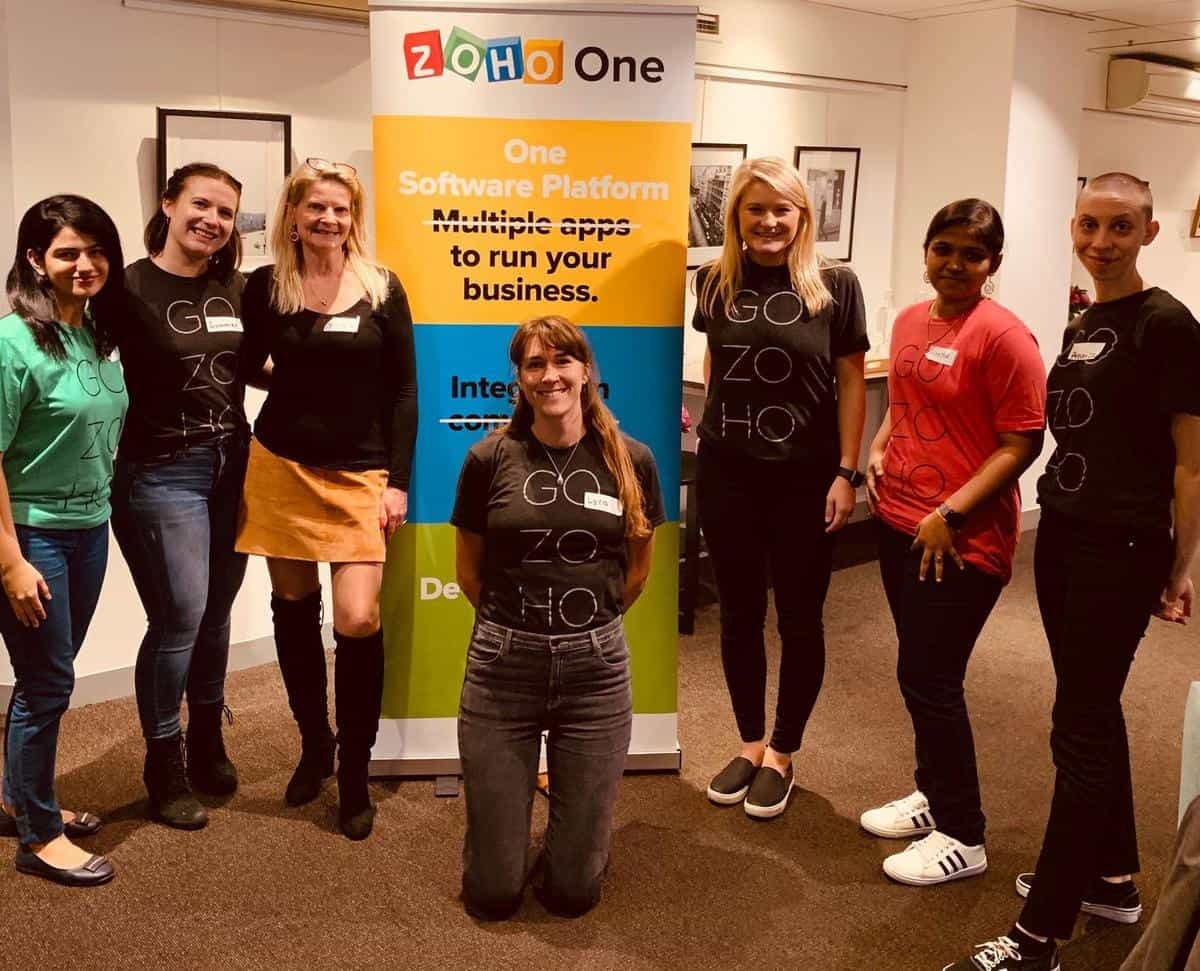No matter how many business books you read, nothing can prepare you for running a business better than striking out and starting one in the first place.
Whatever your entrepreneurial intentions — whether it’s a humble local business or that visionary idea with the potential to disrupt industries — here are some reflections we’ve made at Zoho as we celebrate 25 years since taking our very own bold, bootstrapped first steps.
Remember your why
Contrary to popular belief, the most important part of a business is not what it does; but why it does it, how it does it, and the people powering it. Technology, trends, and opportunities come and go, but people, culture, and values are the core of a business. We’ve learned to be flexible in our products and technology offerings, and never compromise our commitment to our workforce and values. If we lose our people, we’ve lost our identity.
When mapping out your business goals and ideals for the coming years, devise a big-picture mission that underpins everything you do. For us, it’s people and regional empowerment. We devolve responsibility deep into individual teams that can run with minimal interference and allow people to be unafraid of making mistakes.
Across the globe, we’ve opened offices in small towns and rural areas, which has allowed us to build roots in non-metro areas and tap into talent that has been systematically ignored by most employers. This also provides opportunities to the disenfranchised and earns their loyalty.
In Australia, we’ve based our main office in southern Queensland. Bright, talented Australians do live outside of Sydney and Melbourne. By basing ourselves outside these major hubs, we can offer something different in terms of work-life balance to those who might not otherwise have had these opportunities.
Hire differently
The world of work is evolving rapidly, as are the traits that business leaders seek when building and growing teams. We’ve realised over the years that culture, fit, and enthusiasm are more important than credentials when building reliable teams.
By deeming four-year university degrees as non-essential, we have opened ourselves up to a diverse global talent pool that enriches the company’s culture and way of thinking. We have set up our own schools of learning that take teenagers out of high school and transforms them — under careful guidance and experiential training — into productive members of the workforce who can compete and succeed amongst other college graduates.
While you may rethink how you hire, you must also strive to abolish strict hierarchies that come in the way of knowledge and innovation that is increasingly found at the junior ranks. We’ve seen that sometimes the most innovative ideas come from the most unexpected people. People want to work where their voices are heard.
Set goals thoughtfully
When it comes to setting your business’s goals there are a few important approaches to remember.
First, stay specific and targeted. Setting lofty finance-driven goals — like unicorn status or money-raising targets right off the bat — can be overwhelming, unachievable and often require compromises of ethics and culture.
Second, be patient. Your business, like Rome, will take more than a day. The technology industry is fast-paced and cut-throat, but those that stand the test of time are those who do so at a sustainable pace. This might sound counter-intuitive, but we only remember the successful companies and not the scores that burn out of ideas and cash.
Read more: Let’s Talk: Goals
Third, remain flexible. Don’t be afraid to deviate from your business plan. Zoho wouldn’t be the company it is today had our leadership not remained flexible and adaptive.
Finally, leave money on the table, as unrealistic, idealistic and impractical as that idea might seem. Keep prices low, so you don’t leave gaps for others to occupy, add services and capabilities for free, and cater to customers, not your investors who are predictable fair-weather friends. At Zoho, we could charge more for our products, but we subscribe to the philosophy that we’d rather have ten customers pay $1 for something, than one customer paying $10. That approach democratises what we offer and is more valuable than any one large sale.
Rethink your technology approach
While outsourcing is faster than building things yourself, it’s not always better. Building all our software in-house has allowed us to keep costs low for customers, expand our workforce, and differentiate ourselves from competitors. The customer experiences a smooth continuum of overlapping capabilities rather than a hodge-podge of seams and gaps across products. We have chosen to build and own every level of the technology stack, and this has made creating and integrating new products easier, more cost-effective and customer-centric. It mandates deep investment in R&D and the patience to learn new skills, but it allows us to control our own future.
One of our most sacrosanct values is the protection of customers’ privacy. We envisioned this and put it in place long before it was faddish or compelled through regulation. We go to extremes to ensure this and forgo money we could otherwise make (remember, leaving money on the table?). We invest heavily in R & D rather than marketing to build an institution that is both flexible and puts customer value first. Develop your own values, stick with them, and be known for them.
No one business and no one journey is the same. Trends and challenges change, but culture, tenacity, and thoughtfulness stand the test of time. As the next generation of Australian innovators and entrepreneurs embark on their journey during a pivotal economic time, these reflections may help pave the way for their success too.
Keep up to date with our stories on LinkedIn, Twitter, Facebook and Instagram.

